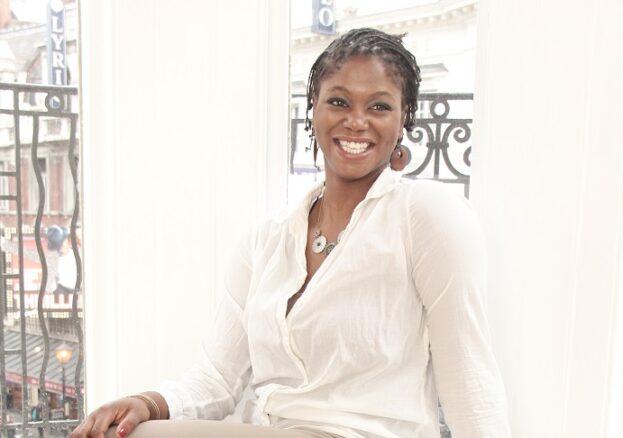
Q: Which sisters do you salute?
A: I could go on forever about the sisters I salute. There are the Williams sisters for their long-standing legacy in the tennis world, and writers like Sara Collins, Chimamanda Ngozi Adichie, Toni Morrison, to name but a few – I really could go on!
However, I am a huge fan of the actress Viola Davis. She advocates for improving mental health and wellbeing for creatives, and champions the lived experiences of Black women, reassuring us that we are enough. Her socials are always filled with uplifting and inspiring information. Like a lot of people, she’s experienced trauma in her life, but I’m just struck by how awesome she seems to be as person, and she’s an absolute joy to experience on screen.
Q: Talk a bit about your origins: where you grew up, how your upbringing had an impact on your educational journey, and where you are now.
A: I feel very lucky to have Jamaican-born parents who migrated to the UK and raised me as second-generation Londoner. They were very keen I gained as good an education as possible, and they also inspired my love of all things to do with words and writing. They let me explore what I might like to do as I grew up, so I feel like my education was a mix of state school, university, and seeing the world through their lived experience as Jamaicans living in England.
I also feel very blessed to have friends who come from different backgrounds and have a wealth of different perspectives on life. All of this, I think, has enriched who and where I am now.
Q: Can you tell us a bit more about your professional experiences, leading to working at The National Archives?
A: I’ve been a civil servant for more than a decade, which means I’ve had opportunities to develop my skills and expertise in various roles across The National Archives. Over the years, I have learned to harness and develop my people, writing and communications skills: strategies, speech writing, internal and corporate communications, writing for national and international audiences, for example. I’ve also learned more about the organisation during this time and have witnessed an increased need (and desire) to build on the DE&I ambitions over the years.
Now, as one of the Joint Heads of Diversity, Equity & Inclusion (and I must give a shout out to the brilliant Rachael Minott with whom I job share this role), I feel I’m in a better (and privileged) position to use what I know to support our colleagues, and to further our DE&I priorities for the organisation.
But I am also mindful of the emotional labour involved, and I am taking steps to better equip myself, for example, by learning about practical things such as counselling skills in my spare time. I think this will help me better support colleagues, both as a sounding board, and for the times when the need arises to go to uncomfortable places in order to improve The National Archives inclusive practices.
Q: As Joint Head of Diversity, Equity & Inclusion (DE&I) for The National Archives, how do your roles support improving historical knowledge – for example, of Black history in the UK in particular?
A: This role involves making sure that diverse histories and perspectives are evident in everything The National Archives does, challenging colleagues to look deeper into the records to find histories of different communities, including Black history.
This includes (but is not an exhaustive list) how the organisation designs exhibitions and events, writing content for the website, i.e. blogs, to broaden people’s understanding and perspectives on historical moments. On a more personal level, as a Black woman working and living in London, and in doing the role I do, if there is anything I can contribute to reminding the world that different people and their perspectives – no matter who they are, what they look like, or where they come from – are just as important and as equal as other historical narratives, then that’s a win.
Q: The wealth of information held at The National Archives is astounding. How do we get children and young people interested in what the archive holds, and indeed, does education need to be more expansive and inclusive when it comes to Black history in the UK?
A: The National Archives is full to the brim with talented people and interesting archival resources. The organisation dedicates much of itself to making sure that anyone from anywhere can access histories.
For example, colleagues work extremely hard to create new resources and to provide greater access to our collections for younger generations. If you haven’t already, check out our website (www.nationalarchives.gov.uk) to get a flavour of what’s been produced:
